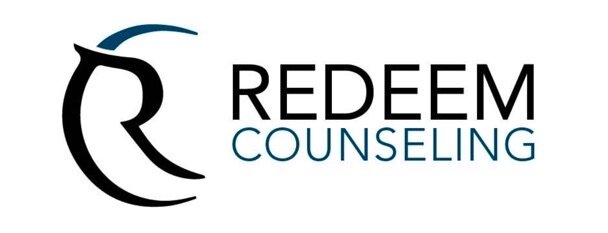Tame the Blame
Have you ever slammed your finger in a door and then blamed the door? It sounds silly in hindsight but we can all probably relate to moments of irrational blaming. It's an impulse as old as Adam blaming Eve and as common as my kids telling me, “She started it!”
Blame is an impulsive reaction to experiences of disappointment, hurt, frustration, or some other loss. It's partially related to the primal instinct to identify and deal with a perceived threat. But our motivations for blaming can be far more complex than simple self-protection. And the consequences of blaming can be detrimental to both our relationships and our personal wellbeing.
There are a variety of reasons for blaming, some of which you can probably recognize and maybe even identify with:
Avoiding Consequences: This is maybe the most obvious motivation for blaming. If you've ever raised or cared for children, you're well aware that blame is a common attempt to avoid the imagined consequences of one's actions.
Validation for Suffering: Sometimes blame is an attempt to draw attention to a wrong suffered. This may be to validate the injustice experienced or to solicit a more attentive response from the one thought responsible for it.
Certainty and Control: Blaming provides a quick, albeit illegitimate, sense of certainty and control in situations that feel threatening. It's complex, but this type of blame commonly appears in intimate partner conflicts and, while providing temporary relief, does far more harm than good.
Shame & Survival: When people feel threatened by the possibility of failure or perceived inadequacy, they may blame-shift to protect their own sense of self. It's a common defense for those who question their personal adequacy and compensate by competing and comparing themselves with others.
Power Preservation: Blame has been a historically popular tool for those who see taking responsibility for a problem as a threat to their status or power. You might have noticed this as a tactic popular with some politicians.
Past Trauma: When past failures or shortcomings resulted in traumatic consequences, people may learn to survive by avoiding responsibility for anything that could be perceived as negative.
Behavioral Conditioning: Sometimes blaming behavior is simply the result of family, culture, or society norms that were modeled to children, resulting in a conditioned behavioral pattern.
This list certainly isn't exhaustive, but it’s enough to help us realize that blame can be complicated. Regardless of the cause, however, blaming generally costs us more than we realize.
Damaged Relationships: Blame is prematurely judgmental and ultimately devaluing toward others. It communicates to whomever we're blaming (including ourselves) that the person and the things that led them to the failure or injustice suffered aren't worth trying to understand. That's a painful blow to any relationship.
Escalated Conflict: Blaming can escalate conflicts and make them harder to resolve. Blaming also tends to invite blaming, which makes it harder to actually get to whatever the real problem might be.
Stunted Growth: Blaming ourselves or others prevents us from taking responsibility for ourselves and our lives. It's unintentionally disempowering and paints us into a corner that makes learning from our mistakes and experiences almost impossible.
Blocked Grief: Blame and resentment make it difficult to truly validate wrongs suffered. They interfere with the kind of adaptive grieving that would allow us to get over something and move on.
Overcoming a blame habit isn't terribly complicated, but it does take practice. Here are some tips:
Slow Down & Be Mindful. We can train ourselves to notice stressful blame reactions, pause to calm ourselves, and choose a more mindful curious attitude. This allows greater understanding and insight. Mindfulness also measurably decreases our subjective experience of suffering in any situation.
Validate, Validate, Validate. Part of effective self-compassion and compassion for others is validating how we're effected by difficult experiences. We're wired in such a way to need a validating witness in our suffering, even if it's our own fault. As adults, mindfulness is a powerful way to validate one's own emotional experience. Sharing your vulnerable experience with a caring friend can also be a life-giving source of validation.
Choose Compassion & Empathy. "To err is human." Rationally, we know that mistakes and the injustices are a normal part of the human experience. But sometimes our hearts don't. Giving compassion to ourselves and empathy to others teaches our hearts that mistakes and losses can have consequences but they don't compromise our humanity.
Don't Blame, Reframe. Instead of blaming others for a situation, pause to reflect on what might really be going on in the situation and how you're being invited to grow. I know that might sound a bit cliche, but it remains profoundly true. Don't waste your hardships. We often grow more through them than we do from our successes.
Seek Help. If you find that letting go of blame seems just too difficult, there is most likely a legitimate underlying reason. Often times there is an unnamed hurt waiting to be understood and processed. A therapist or counselor can be helpful for this.
Blaming others (and ourselves) is a human tendency that comes with serious consequences for our relationships and our own emotional wellbeing. When we pay attention and lean into our difficult experiences of failure or injustice, we can free ourselves from the blame game. By doing so, we allow ourselves to experience transformational growth, emotional freedom, and healthier happier lives.
